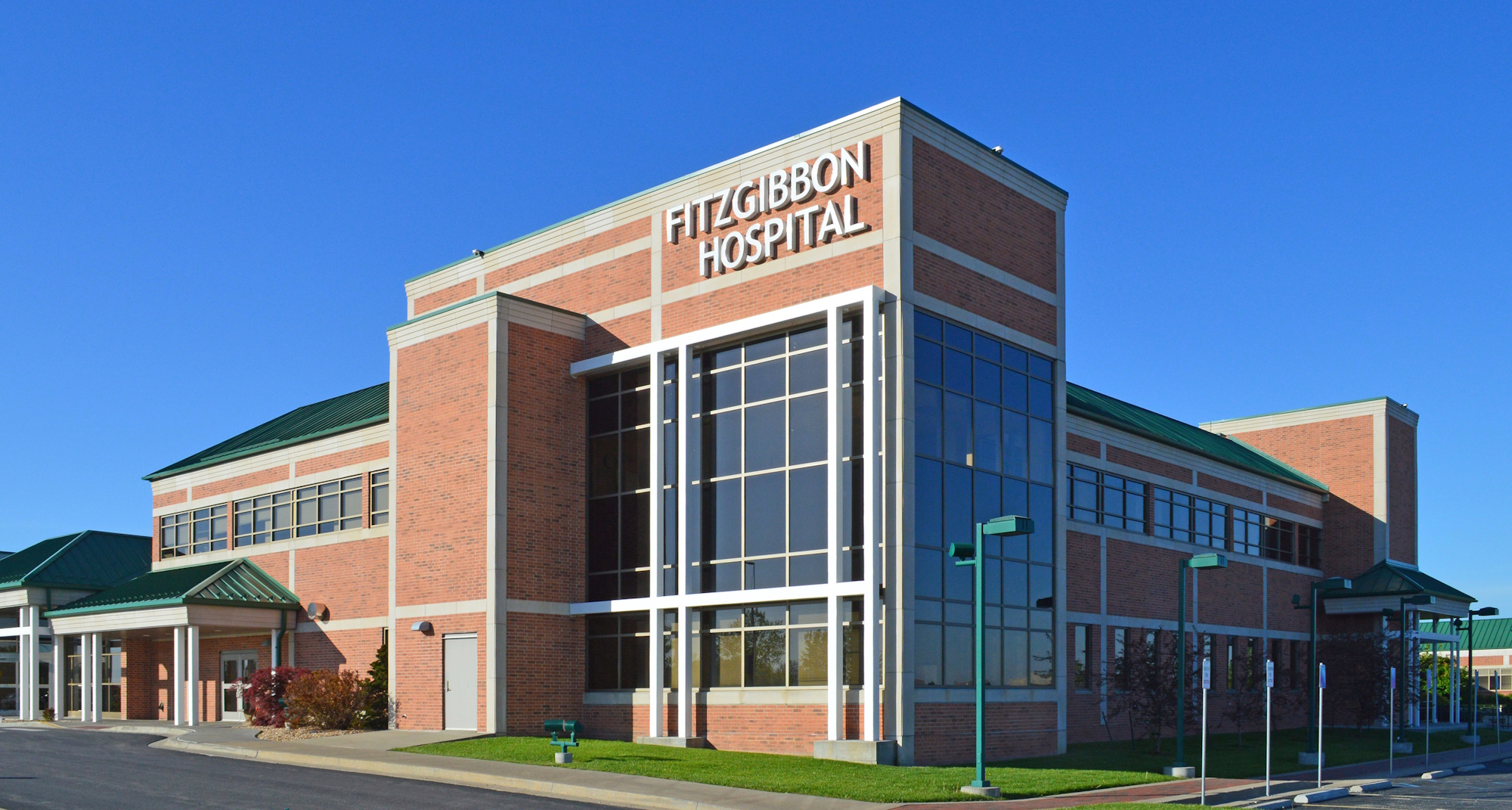Front-Line Healthcare Workers Vaccinated at Fitzgibbon and TLC
December 29, 2020


Collaboration between Fitzgibbon Hospital and the public health departments of Saline and Johnson counties resulted in the first doses of Covid-19 vaccine being administered Monday to front-line healthcare workers at the hospital in Marshall. Following hours of planning meetings and a flurry of preparation spearheaded by Fitzgibbon Hospital’s Chief Nursing Officer Angela Igo, MSN, R.N., in the hours leading up to the Christmas holiday, the team at Fitzgibbon Hospital successfully vaccinated its first 10 workers on Dec. 28.
Representatives of Johnson County Community Services public health department arrived just before 10 a.m. Monday with a rolling medical cooler containing 80 doses of the Pfizer Covid-19 vaccine, which has been designated by the State of Missouri for frontline healthcare workers as part of the state’s vaccination plan. The doses were made available via a redistribution agreement coordinated by Tara Brewer and the Saline County Public Health Department after a conversation with her peer in Johnson County, Mo.
“We received 975 doses from the state on about Dec. 16,” said Mary Thaut, administrator of the agency in Warrensburg. “Those went straight in the freezer, and then we began distributing them to the front lines. Tara (Brewer) and I talk on a regular basis, so this distribution to Fitzgibbon came about.”
“This is a huge thing for rural Missouri,” said Brewer, who was present for the vaccine hand-off. “We are happy to be helping make this possible.”
The Pfizer-manufactured vaccine is shipped in allotments of 975 total doses, with a limited shelf life and the requirement for storage at -70 degrees Celsius, or -94 degrees Fahrenheit. The ultra-cold freezer requirement limits the number of sites which can adequately store the Pfizer vaccine, although state officials have specified that they want no waste in such a precious commodity. And once thawed, the undiluted vial can be kept refrigerated for only five days. Each vial holds approximately five doses which requires dilution. The Fitzgibbon pharmacy, led by PharmD Joe Cho, diluted the vials into individual patient doses in a sterile environment. Once diluted, the vaccine is only good for six hours, so patient scheduling is also critical in the process.
“It’s all a very tenuous process with specific activities that must happen along the way to ensure efficacy and safety,” said Angy Littrell, President and CEO of Fitzgibbon Hospital. “I’m proud of our team for all their work, which came right at the same time as the Christmas holiday, with so many people in and out of the office. But we couldn’t have received a better Christmas present – it’s one of hope.”
The Pfizer vaccine requires two doses, three weeks apart. At the time of initial administration, those receiving the vaccine make their appointment for their second dose. Experts say the essential second dose should be taken according to the recommended schedule.
“I got the vaccine to protect my family, those of my colleagues and staff who work together in the ER and, really, the patients that we take care of,” said Darin Haug, D.O., Chief Medical Officer and emergency room physician who was the first to receive the vaccine at Fitzgibbon Hospital. “Protection for me allows me to continue to take care of patients that we see in the ER every day.”
The State of Missouri has a well thought-out vaccination plan, with the early doses of the vaccine targeted exclusively for healthcare workers on the front lines, as well as residents of long-term care facilities. Those facilities entered into agreements with national pharmacies, who were charged with administering the Covid-19 vaccine to those populations.
In a parallel activity, residents of The Living Center, the long-term care facility on the Fitzgibbon campus, also began receiving Covid-19 inoculations on Dec. 28. Those vaccines were administered by representatives of CVS Pharmacy, also part of the state’s plan for mass-vaccination.
After residents of long-term care facilities and their employees and front line healthcare workers receive the vaccine in what the state has defined as Phase 1A, the remainder of the state’s vaccination plan has Phase 1B limited to:
- First Responders
- Childcare Workers
- Teachers & Education Staff
- Water/Wastewater Workers
- Energy Workers
- Critical Manufacturing Workers
- Food & Agriculture Workers
Those at increased risk for severe COVID-19 illness, including those aged 65 years of age or older, may also receive priority as part of Phase 1B and includes those individuals with:
- BMI > 30 (obesity)
- Chronic Kidney Disease
- Chronic Obstructive Pulmonary Disease
- Diabetes
- Hypertension
- Chronic Heart Disease
Phase 2 will include populations at increased risk for virus spread, which includes those living in congregate settings such as the homeless and people in prison. And, finally, Phase 3 will vaccinate healthy members of the general population.
“The situation is very fluid,” said Littrell. “With the couple of phases to get through, I expect the general public will be vaccinated sometime after the conclusion of the first quarter of 2021. Remember that each phase protects all the people that that phase may come into contact with. I’m really encouraged that this first phase began by year end, which we had been told.”



